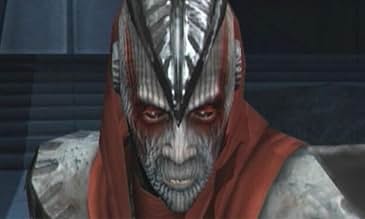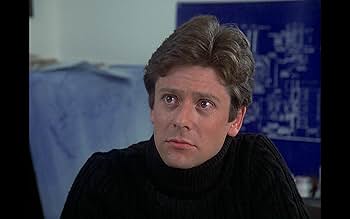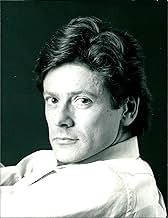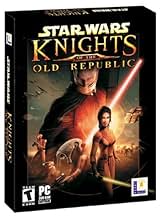Kristoffer Tabori
- Actor
- Director
- Producer
The son of Swedish actress Viveca Lindfors and American director
Don Siegel, actor Kristoffer Tabori was born in the wealthy area of Malibu on August 4, 1952, and appeared in one of his mother's films Weddings and Babies (1958) as a youngster. His parents divorced when he was barely a year old and his mother subsequently married Hungarian writer/director George Tabori. Kristoffer would use the name "Tabori" for his own.
Kristoffer started making the theater rounds in the late 60s, taking his first official stage bow with "The Merchant of Venice" at the Berkshire Theatre Festival in 1966. In 1968, the teenager appeared off-Broadway with his mother at the Lucille Lortel Theatre in the Bertolt Brecht play 'The Guns of Carrar," which was translated by stepfather George. After a role in "A Cry of Players" that same year, he made his 1969 Broadway debut in "The Penny Wars" and followed this immediately with a part in "Henry V" starring Len Cariou. Earlier in 1970, Kristoffer was presented with the Theatre World Award for his excellent work in "How Much, How Much?"
Tabori's stage success led to progressive strides in '70s film wherein he became a product of his generation playing lean. long-haired hippies and liberal thinker types. In unbilled movie bits as a late teen (including a flower child in the musical Sweet Charity (1969)), the nascent actor also made an unbilled appearance in his father's cop action drama Coogan's Bluff (1968), one of several projects that had Don Siegel directing Clint Eastwood.
Kristoffer earned strong reviews for his very first film lead in Making It (1971) as a sex-obsessed 17-year-old who suffers a heavy, traumatic experience with his mother, played by Joyce Van Patten. While this opened doors for major roles in such offbeat films as The Sidelong Glances of a Pigeon Kicker (1970) and Journey Through Rosebud (1972), it did not pave the way to movie stardom. He started impressing on the smaller screen instead with quality TV-movies including A Memory of Two Mondays (1974), The Glass House (1972), QB VII (1974), The Lady's Not for Burning (1974), Seventh Avenue (1977), Rappaccini's Daughter (1980), London Embassy (1987), The Hound of the Baskervilles (1988) and Marilyn & Bobby: Her Final Affair (1993).
Kristoffer also racked up dozens of guest appearances on such popular TV programs as "Medical Center," "Marcus Welby," "Owen Marshall," "Cannon," "The Rookies," "Baretta," "The Rockford Files," "Trapper John," "The Facts of Life," "The (New) Twilight Zone," "21 Jump Street," "Designing Women," "Quantum Leap," "Jake and the Fatman," "Matlock" and "Murder, She Wrote." He also played a regular part as a doctor on the dramatic series Chicago Story (1982).
In the mid 1970s and into the next decade, Kristoffer turned more and more to the stage, joining, at various times, the Arena Stage theater company in Washington, D.C., Southern California's South Coast Repertory and appearing at the National Shakespeare Festival. He embellished his impressive theatre resumé with roles in "Dream of a Blacklisted Actor," "Hamlet" (title role), "Habeas Corpus" (a replacement on Broadway), "Romeo and Juliet," "Henry IV, Part I," "The Wager," "Scribes," "St. Joan," "The Trouble with Europe," "Measure for Measure" and "Boy Meets Girl." In 1980, he appeared on stage with his mother in "An Evening with Viveca Lindfors and Kristoffer Tabori."
In the 1990s, Tabori focused on directing, predominantly on TV, helming episodes for such series as "Picket Fences," "Chicago Hope," "Providence" and "Judging Amy." Shortly before his mother's death in 1995, he appeared as her son in the film Last Summer in the Hamptons (1995). Kristofffer has also lent his crisp voice to scores of video games that focused on the "Battlestar Galactica" and "Star Wars" target area.
Kristoffer married British actress Judy Geeson in 1984, appearing on stage together in "The Common Pursuit" (1986) before divorcing in 1989.
Kristoffer started making the theater rounds in the late 60s, taking his first official stage bow with "The Merchant of Venice" at the Berkshire Theatre Festival in 1966. In 1968, the teenager appeared off-Broadway with his mother at the Lucille Lortel Theatre in the Bertolt Brecht play 'The Guns of Carrar," which was translated by stepfather George. After a role in "A Cry of Players" that same year, he made his 1969 Broadway debut in "The Penny Wars" and followed this immediately with a part in "Henry V" starring Len Cariou. Earlier in 1970, Kristoffer was presented with the Theatre World Award for his excellent work in "How Much, How Much?"
Tabori's stage success led to progressive strides in '70s film wherein he became a product of his generation playing lean. long-haired hippies and liberal thinker types. In unbilled movie bits as a late teen (including a flower child in the musical Sweet Charity (1969)), the nascent actor also made an unbilled appearance in his father's cop action drama Coogan's Bluff (1968), one of several projects that had Don Siegel directing Clint Eastwood.
Kristoffer earned strong reviews for his very first film lead in Making It (1971) as a sex-obsessed 17-year-old who suffers a heavy, traumatic experience with his mother, played by Joyce Van Patten. While this opened doors for major roles in such offbeat films as The Sidelong Glances of a Pigeon Kicker (1970) and Journey Through Rosebud (1972), it did not pave the way to movie stardom. He started impressing on the smaller screen instead with quality TV-movies including A Memory of Two Mondays (1974), The Glass House (1972), QB VII (1974), The Lady's Not for Burning (1974), Seventh Avenue (1977), Rappaccini's Daughter (1980), London Embassy (1987), The Hound of the Baskervilles (1988) and Marilyn & Bobby: Her Final Affair (1993).
Kristoffer also racked up dozens of guest appearances on such popular TV programs as "Medical Center," "Marcus Welby," "Owen Marshall," "Cannon," "The Rookies," "Baretta," "The Rockford Files," "Trapper John," "The Facts of Life," "The (New) Twilight Zone," "21 Jump Street," "Designing Women," "Quantum Leap," "Jake and the Fatman," "Matlock" and "Murder, She Wrote." He also played a regular part as a doctor on the dramatic series Chicago Story (1982).
In the mid 1970s and into the next decade, Kristoffer turned more and more to the stage, joining, at various times, the Arena Stage theater company in Washington, D.C., Southern California's South Coast Repertory and appearing at the National Shakespeare Festival. He embellished his impressive theatre resumé with roles in "Dream of a Blacklisted Actor," "Hamlet" (title role), "Habeas Corpus" (a replacement on Broadway), "Romeo and Juliet," "Henry IV, Part I," "The Wager," "Scribes," "St. Joan," "The Trouble with Europe," "Measure for Measure" and "Boy Meets Girl." In 1980, he appeared on stage with his mother in "An Evening with Viveca Lindfors and Kristoffer Tabori."
In the 1990s, Tabori focused on directing, predominantly on TV, helming episodes for such series as "Picket Fences," "Chicago Hope," "Providence" and "Judging Amy." Shortly before his mother's death in 1995, he appeared as her son in the film Last Summer in the Hamptons (1995). Kristofffer has also lent his crisp voice to scores of video games that focused on the "Battlestar Galactica" and "Star Wars" target area.
Kristoffer married British actress Judy Geeson in 1984, appearing on stage together in "The Common Pursuit" (1986) before divorcing in 1989.















































